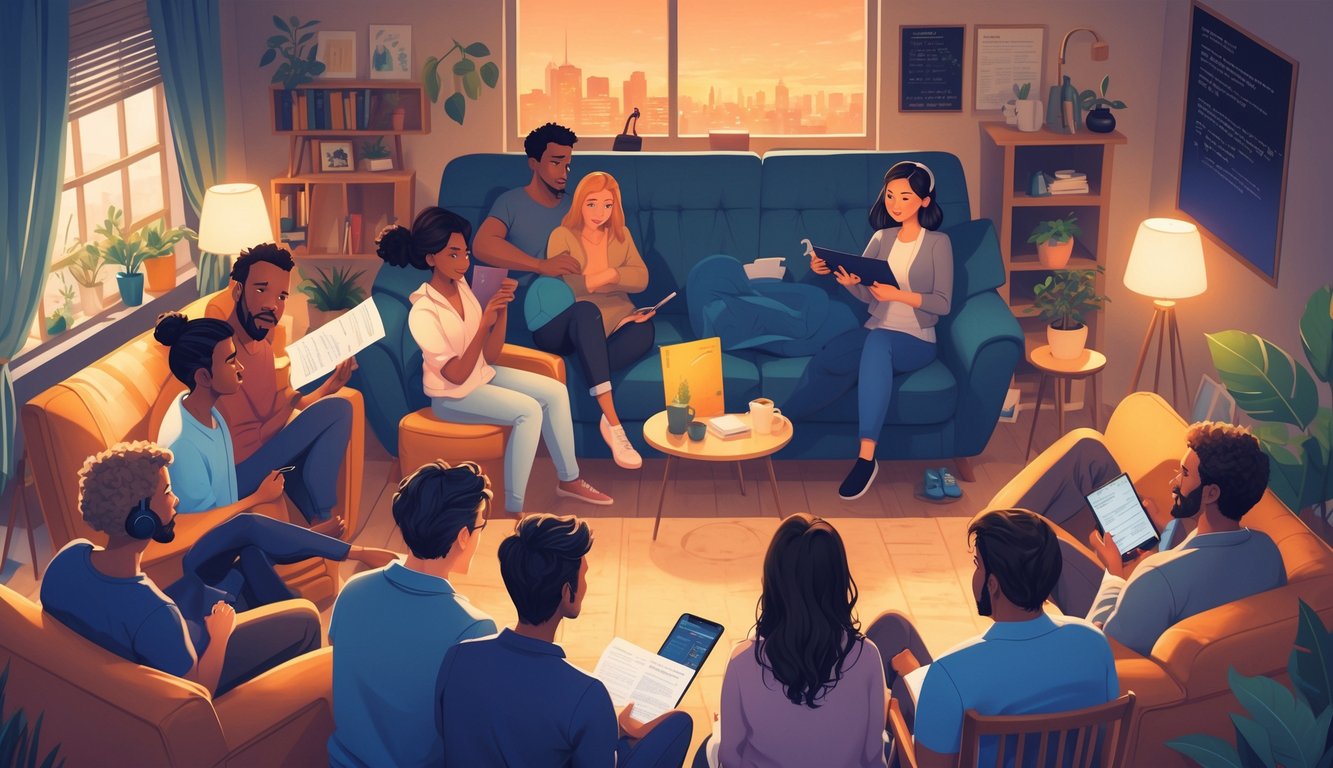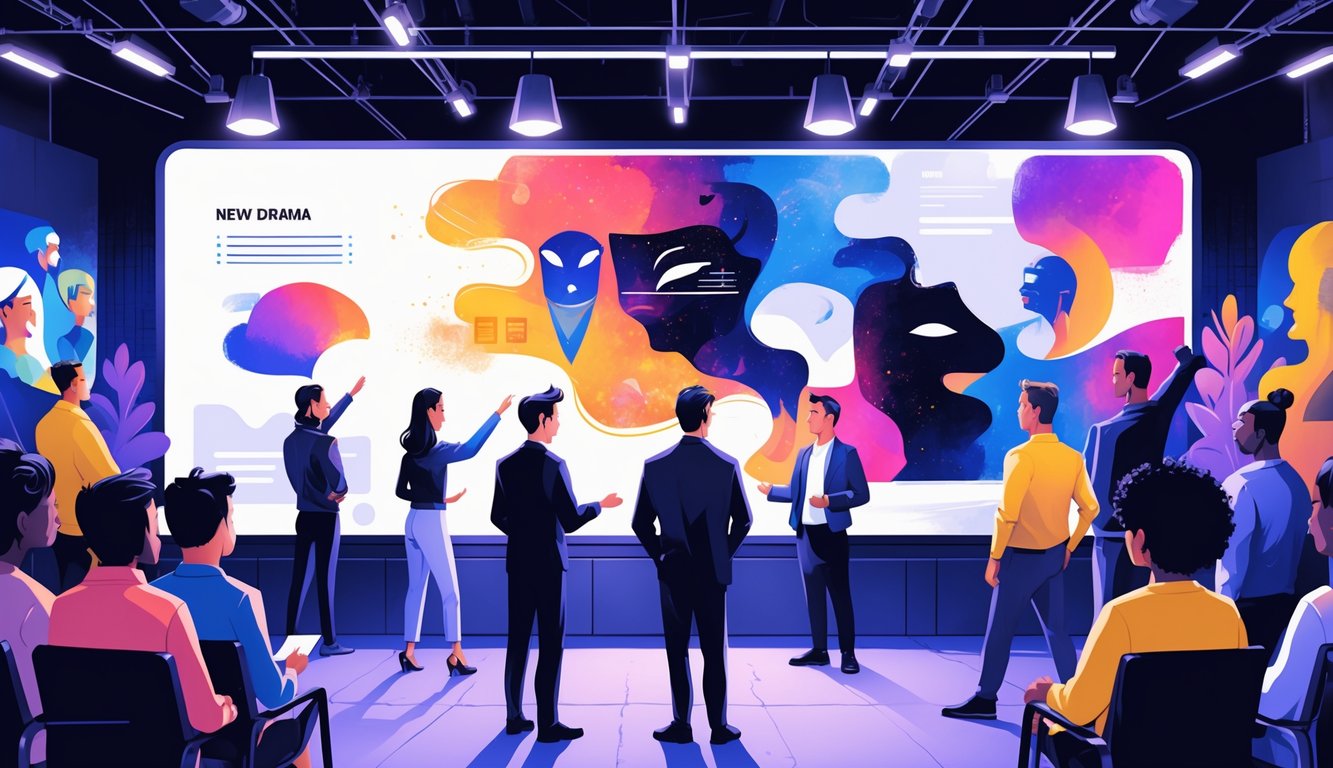
Streaming Platforms Driving Genre Innovation

Here we go again—the algorithm’s hijacking my Saturday, pushing some supernatural courtroom dramedy nobody’s ever heard of. Streaming services are obsessed with new content, not just more of the same, and that’s why all these tiny genres keep showing up in my feed. The drama-comedy line? It’s gone. 2024 data says people are drifting into everything from dark academia thrillers to bilingual coming-of-age stories.
Influence of Streaming Originals
Every time I open a streaming app it’s another “Original” banner—neon, in your face, and somehow shoving all the boring reboots into the void. Platforms are actually funding weird stuff now: time-loop mysteries, genre hybrids nobody would have touched on cable. The 2024 ARTEY Awards tracked the biggest releases, and the top viewership prizes went to shows that smashed genres together—comedy, drama, reality, whatever.
My cousin, who used to hate subtitles, now binges Polish crime shows. Streaming originals killed the old gatekeepers, and by dumping whole seasons at once, they basically ended “appointment TV.” A critic friend texted me: “Everyone’s just burning through stories as fast as the platforms can shovel them out, then moving on.” Is that variety or just overload? Who knows, but people keep coming back.
Netflix’s Contribution to Genre Diversity
Let’s not pretend Netflix originals now owning over 9% of U.S. streaming demand isn’t a big deal. They keep climbing every quarter. And it’s not just dramas—K-dramas, especially after “Squid Game” blew up in 2021, just bulldozed their way into everything. Netflix doubled down, ordering high school thrillers, chill slice-of-life, even food shows.
People complain it’s all murder mysteries, but my Netflix feed is full of political anime, Spanish thrillers, and whatever else is trending globally. The numbers actually show their share in traditional genres dropped, from 32% to 27% in two years, because they keep rolling out weird new stuff. There’s probably a spreadsheet somewhere proving these risks pay off mostly in international hits, but wow, I’ve never seen so many knock-offs in one place.
Disney+, Hulu, Prime Video, and Paramount+
Disney+ gets on my nerves. They slap Marvel and Pixar banners everywhere, but then, out of nowhere, I’m scrolling past a docudrama about table tennis prodigies? Who’s making these decisions? Hulu, meanwhile, is like, “Here’s a trauma-drenched biopic!” followed by a horror-comedy that’s somehow also a dating show. Zero logic. Amazon Prime Video? My neighbor keeps it for “genre roulette nights,” which… what even is that? She says one click is Victorian robots, the next is a sitcom about food delivery drivers. I’m not convinced she’s making these up.
Paramount+? Someone there’s obsessed with period crime. I mean, how else do you explain detective shows set in the ‘70s right next to angsty teen thrillers? Feels like every exec’s just tossing darts at a wall. I actually looked up the stats (don’t ask why): apparently, non-drama/non-comedy stuff jumped from 47% to 57% in top streaming titles since 2022, according to TVREV. My mom’s convinced she invented “weekday true crime reenactment marathons.” I’m not correcting her.
Breakout Shows and Their Impact

So, every time I think I know what’s on, I end up catching some bizarre drama I didn’t even mean to watch. I’m just flipping channels, expecting the usual, and suddenly, nope—something sideways grabs me. Genres don’t mean what they used to, and honestly, nobody I know can keep up.
Fool Me Once and Bridgerton
“Fool Me Once” on Netflix? Yeah, nobody warned me that show would burrow into my brain for a week. Michelle Keegan’s jackets alone are a mood, but it’s the pacing—no filler, just stress. Supposedly, 80% of viewers stuck around week-to-week, which is wild because most shows drop off a cliff after episode three. Meanwhile, my friends still quote “Bridgerton” like it’s Shakespeare.
And “Bridgerton” isn’t even pretending to be a proper period drama. Modern music, costumes that’d make Jane Austen faint, and Queen Charlotte’s wigs—seriously, those deserve their own spin-off. Stats say 82 million households watched in month one. Parrot Analytics acts like that’s normal. I don’t get it, but apparently, everyone’s into these period drama remixes.
Bluey: A New Kind of Family Drama
I watched “Bluey” with my niece, and suddenly I’m in tears over cartoon dogs. BBC Studios keeps reminding me it’s Australian, as if that matters. The writing? Feels like exhausted parents and dog trainers teamed up. I read somewhere that “Bluey” outperformed every new live-action sitcom in U.S. streaming last year, which—come on, really? I checked three times. “Sleepytime” episode? Emotional ambush. Adults break down Bandit Heeler’s parenting on Reddit like it’s grad school. If Target runs out of plushies again, not my fault.
Love Is Blind: Blending Reality and Drama
“Love Is Blind” irritates me. It’s so predictable, then suddenly, episode three, and I’m texting spoilers like a maniac. It’s not even real reality TV, but it’s not not reality TV, you know? People in pods, chaos, drama that’s supposedly “unscripted”—sure. My therapist has opinions about why it’s addictive. TVREV says traditional drama’s tanking; hybrids like this keep subscribers hooked. Reunion specials get more engagement than half the “prestige” dramas. Is it real? Staged? Who cares? I’ll watch next season. I’m not proud of it.



